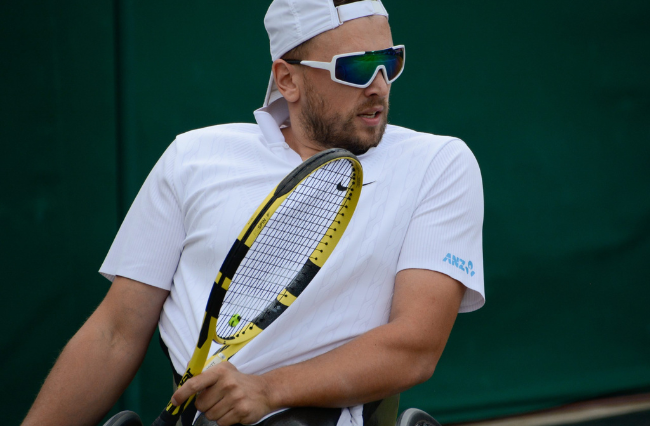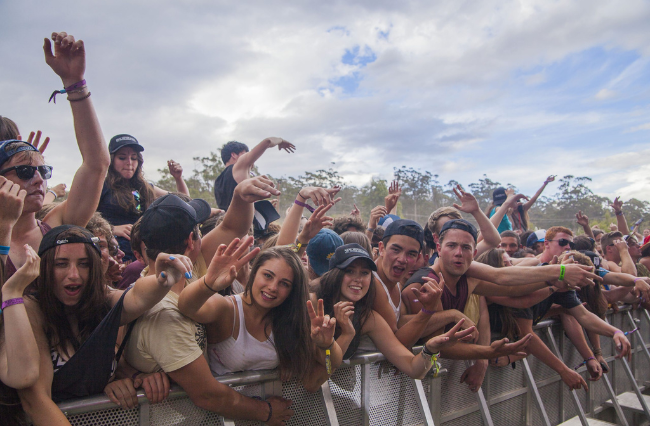Chris Masters’ career as an investigative reporter includes ground-breaking stories for Four Corners on the French involvement in the sinking of the Greenpeace vessel Rainbow Warrior in Auckland harbour in 1985, police corruption in Queensland that led to the Fitzgerald Inquiry as well as reporting from war zones such as Rwanda and Bosnia. It’s a remarkable career for any journalist — even more so given that Masters’ first passion wasn’t journalism, as he explains to Madeleine Barwick.
Did you always want to be a journalist?
I don’t think that journalism was something I was so focused on when I was younger. My mum was a journalist but that doesn’t always drive you towards journalism when your parent does the job. That was pretty much the case with me. I was more interested in film-making and documentary making. When you work as a documentary maker, half of your responsibilities are invested in television and half are in journalism. I wasn’t aware of it straight away, but over time it was clear that I had some aptitude towards journalism and I think the background with my mother had something to do with that. So over time I moved more and more towards journalism, but I always maintained an interest in the filmmaking side of it as well.
What is the biggest change you have seen since you started as a journalist?
Over 40 years or so, I think that news has become much more of a business than a public service. I think there was a strong culture of public service that was evident throughout the media — not just in the public sector broadcasters, but in the commercial media as well. There was a strong sense of the importance of news value. The objective was to discover and report facts and stories that are important to the broader population and to develop narrative craft so that you can make what is important interesting. I think there was probably a stronger professional ethos in the past, and I’m probably more conscious of the changes because I work in television.
There’s been another significant change in television: television began its life, as far as news and current affairs is concerned, more as an information medium. But as television grew, the entertainment personalities tended to take over. Of course then there’s another big change we have with the introduction of the World Wide Web that really challenges the industry in the way we have known it.
Do you think the internet helps or hinders investigative journalism?
I think that it certainly can help it but at the moment it appears to be hindering it. It’s kind of ironic. As an investigative reporter, you now have access to online databases, and can do the sort of research in minutes that even 10 or20 years ago took days to do, looking up company records and that sort of thing. You’d expect the internet would be a powerful tool for discovering. Strangely enough, modern day journalists have very little time to research, face-to-face, on the telephone or over the net. I think that’s another big change: we do a lot more coverage rather than ‘discoverage’. The opportunity for a reporter to own a story from beginning to end is not as great as it used to be.
Many people have a glamourous view of investigative journalism. What’s the reality of the profession?
The reality of it is that it isn’t glamourous. It’s often depicted as reporters being in a position where they are given stories by Deep Throats. I think people often get a picture that these stories are out there fully formed and all we have to do is get ourselves in a position to find them. It isn’t the way that I’ve seen it practiced. More often than not it’s the gathering of a whole range of disparate threads where there is no single source that is more important than your own capacity to process this information. In a way, the primary source is yourself. And that’s the way I think it should be. Every now and then you will do a story that is almost like a real life adventure as it is so often depicted in popular fiction, but more often than not you’ll be doing stories that are just hard grind all the way. If information is concealed, it’s often concealed for a particular reason, as people don’t want you to find this particular information out.
What has been the biggest challenge you’ve faced in your career so far?
I suppose news is unpredictable so you want to finish what you start — and that’s the deal as far as I’m concerned. Sometimes somewhere through the process, you feel personally that it wasn’t worthwhile. You never quite know if the story is going to be a big winner. That doesn’t matter so much — you have your wins and you have your not-so-great stories. But when it comes a burden, when you put a difficult story to bed and want to put it behind you and you get sued, as with me, you spend more than a decade having to deal with that particular story. Being cross examined in court isn’t fun and it can be very stressful. I’ve always been happy to have done the job, I’m proud to be a reporter, but it’s certainly added a few years to my life on occasions.
And the highlight of your career?
Sometimes the highlight is when someone comes up to you and tells you that they remember a story you did many years ago. They talk about in detail and you know that you really made an impact on their life. That’s a highlight. I can look back on stories I’ve done and think I’m proud to have done that. Getting a tangible benefit out of investigative reporting, such as getting someone out of jail who shouldn’t be there, that makes you feel that it’s really an important job.
You’ve reported from some dangerous places like Rwanda and Bosnia. What’s it like to report from war zones?
Well war zone reporting is a different kind of beast. It’s probably easier to do the reporting because everything is happening right in front of you. It’s not like investigative reporting back at home which can be tedious and can take forever. The story is vivid and graphic and right before your eyes, but those experiences are vivid and graphic and stay with you. That’s certainly been the case with reporting in those places. Journalists don’t run away from these stories. Quite the opposite — they’re often attracted to them. All sorts of journalists react in different ways and all in all I understand I would be less than human if there wasn’t an imprint on me of those experiences.
What’s the biggest misconception that people have about journalists?
I think journalists by and large operate in the public interest and then in their own private personal interest. I think it’s often not a career choice that’s going to make you rich. I think the actual craft of journalism — the importance of doing what we do of generating and developing news judgment — isn’t well understood. Oddly enough, as communicators we don’t communicate the essence of what we do. I think you can see it with citizen journalism. Citizen journalism to me doesn’t work so well without institutional support and it’s not likely to develop that abstract art, that black art of knowing what is important and knowing where to look next.
You’ve won both Walkelys and Logies. How does it feel to get this kind of recognition?
It’s good to get recognition, for sure, and I’m sure if I hadn’t gotten recognition, if I hadn’t won awards, I’d probably have a different attitude towards them. But I don’t want to get carried away either. I don’t particularly like the way that awards are given to stories rather than story telling and I don’t particularly like the promotion of the notion that if you get onto a good get — if you happen to crack a good story because you were there when the phone rang at the right time — then that makes you a good journalist.
What makes a good story?
Every story is a good story. We shouldn’t be a snob about stories, we shouldn’t just be saying ‘well I’m only going to tell these stories because they are more important’. Of course you will rank stories above other stories because as an investigative reporter you’ve got to make decisions about where you’re going to apply your resources and time and effort. But generally speaking, we’re storytellers and it’s important to not just pick up a story that will tell itself. I think it’s important to pick the story that pragmatically and realistically is the best one that is presenting itself at a particular occasion. If it’s going to be difficult then you must accept that responsibility.
Finally, do you have any advice for upcoming journalists?
You learn all the time. There’s not a stage when you stop learning. I think that it’s very important to be patient when you’re in your 20’s where you’re allowing your own skills to develop; your capacity to be sceptical in your judging of information. I didn’t find that I gained the confidence to do my job properly until I’d had a good 10 years of trying to figure it out and making some terrible mistakes. I think in the new multimedia environment, you’ve got to be conscious and up to speed with all sorts of storytelling and there are occasions where you’ve got to be very organised. Organisation, particularly in investigative reporting, is very important and there may well be occasions where you get onto something worthwhile and you have to put it on the backburner because sometimes stories have their own kind of timetable and you can’t force them.
Madeleine Barwick is completing her honours thesis in journalist at La Trobe University







